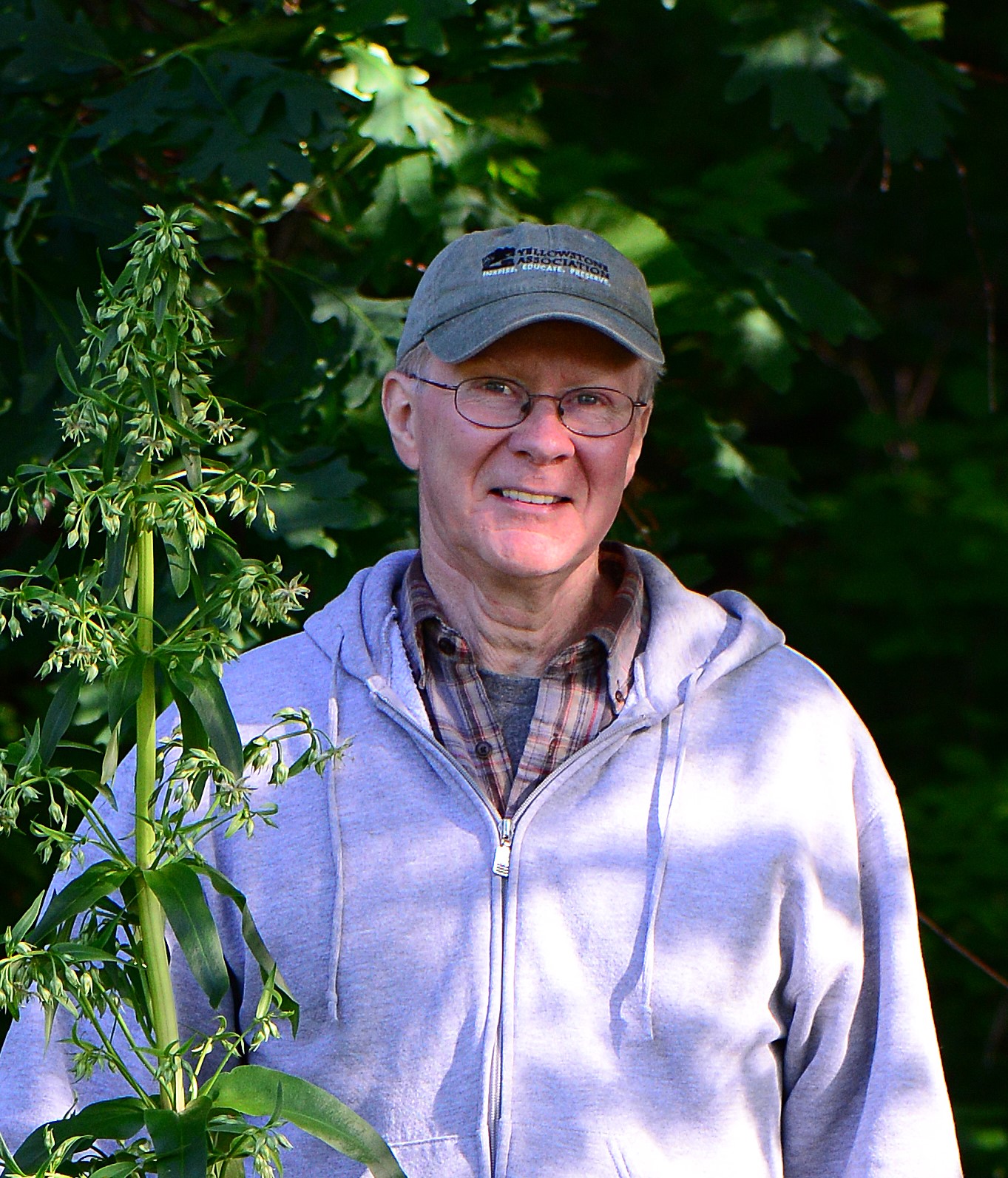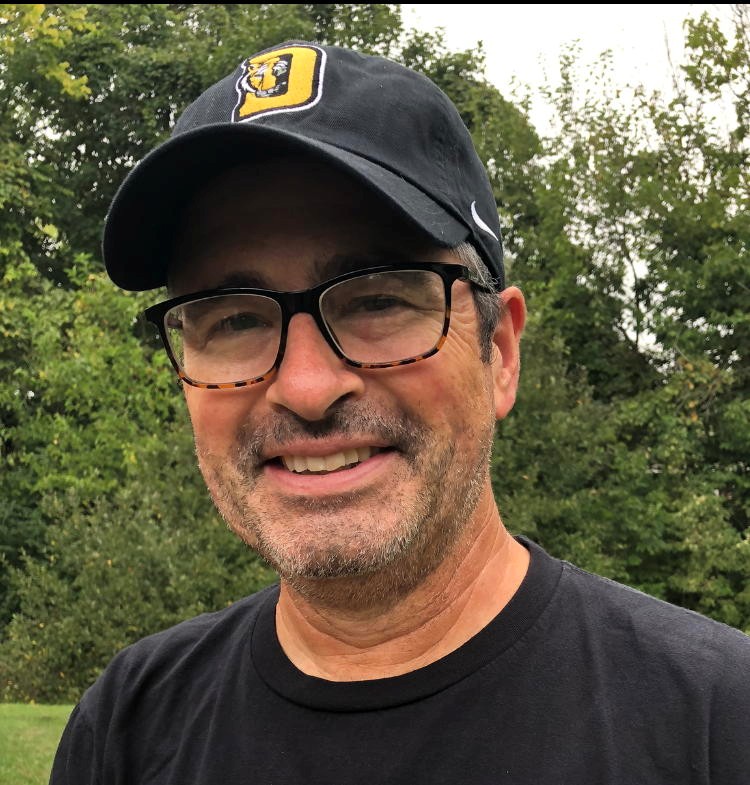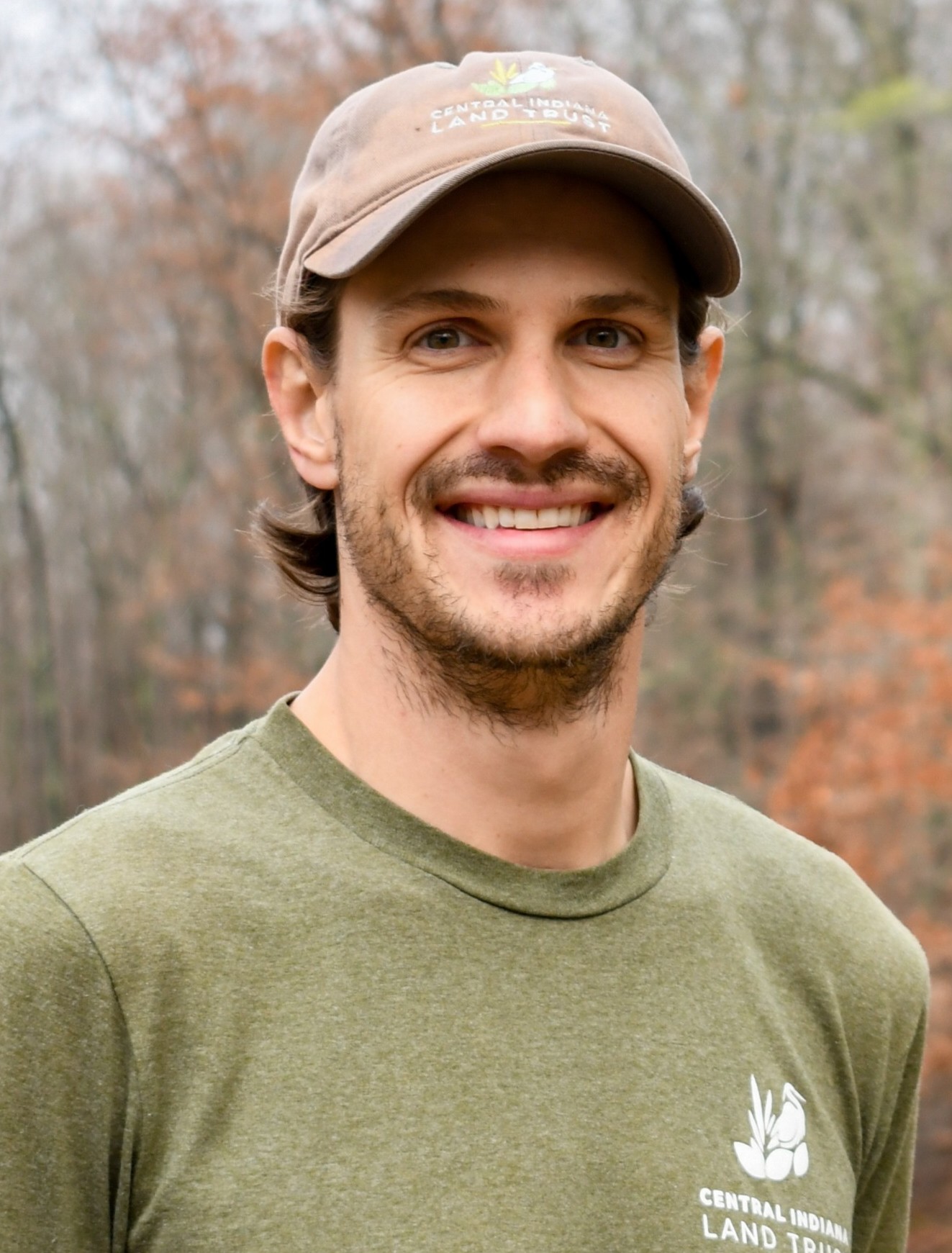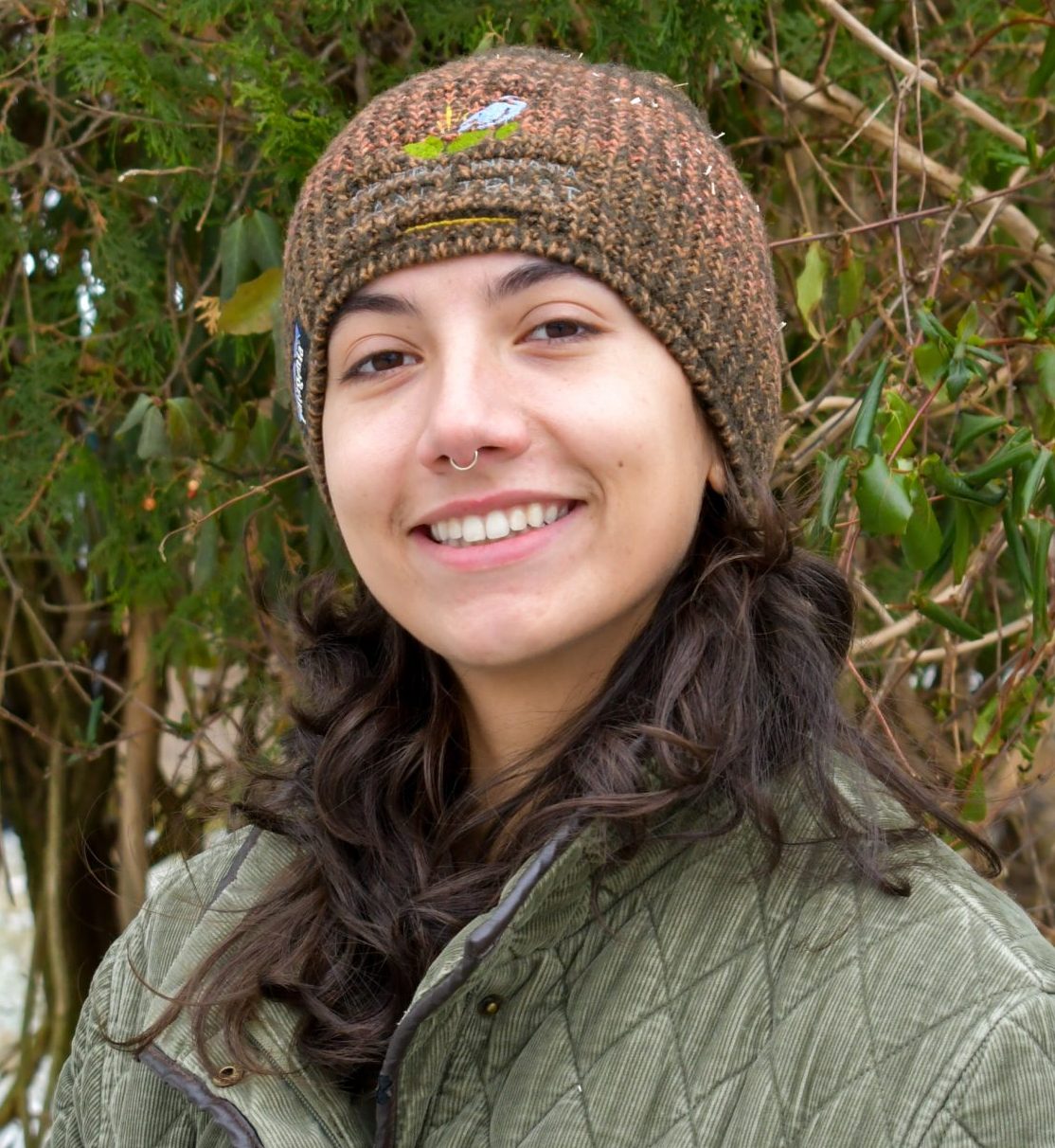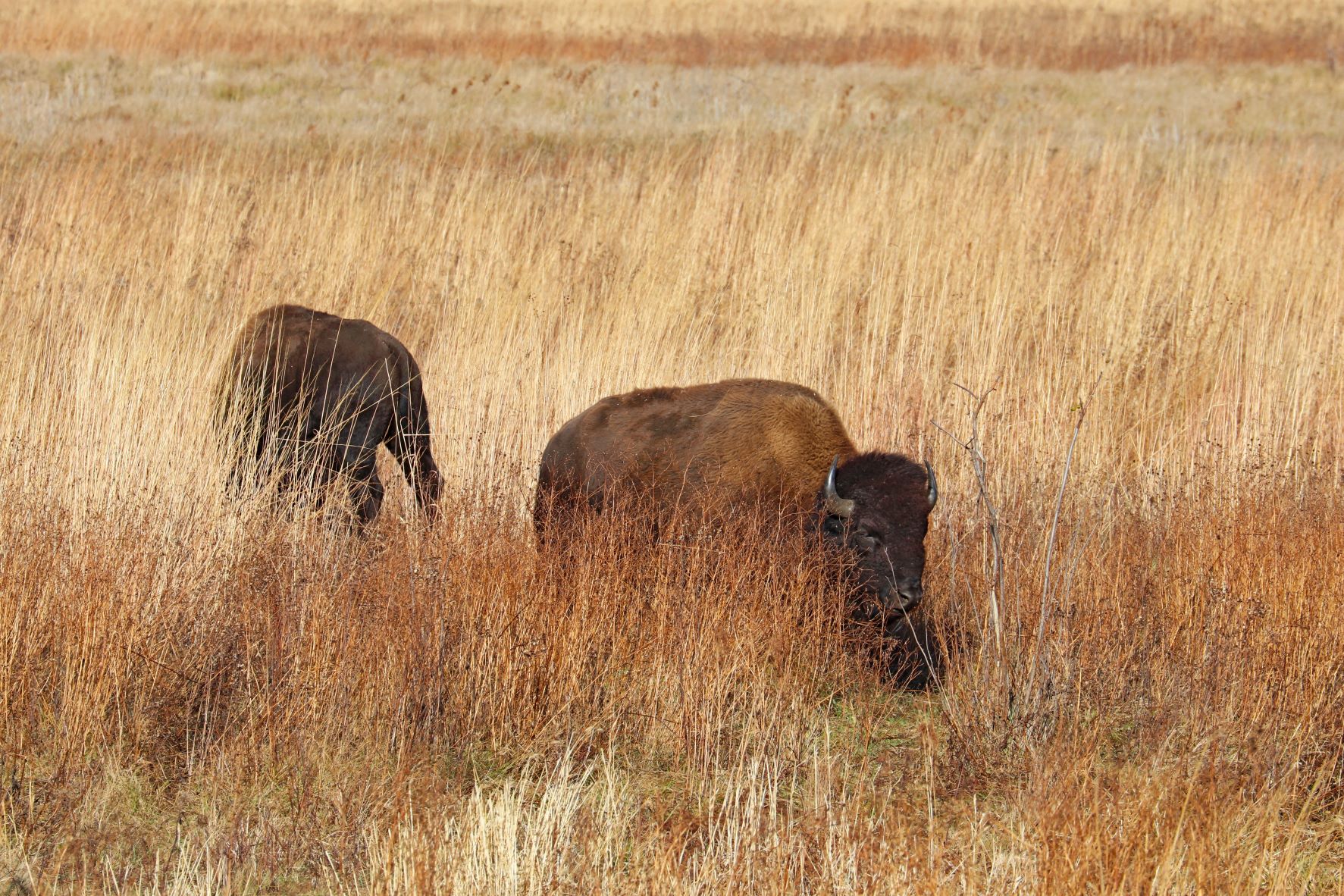
bison
Bison at Kankakee Sands
CILTI Founder Earns Prestigious Award
Written By: Shawndra Miller
Date Published: October 10, 2022
Shawndra Miller
Ellen Jacquart started a career in conservation with no roadmap. While she was following her interests in higher academia, she never could have imagined that one day she would have founded a land trust, managed stewardship for The Nature Conservancy in Indiana, or worked successfully to ban the sale and trade of invasive plants.
Ellen recently was awarded the Carl N. Becker Stewardship Award from the Natural Areas Association, in recognition of doing all that and more.
But back then, short of becoming a professor, she had no idea what to do with her education.
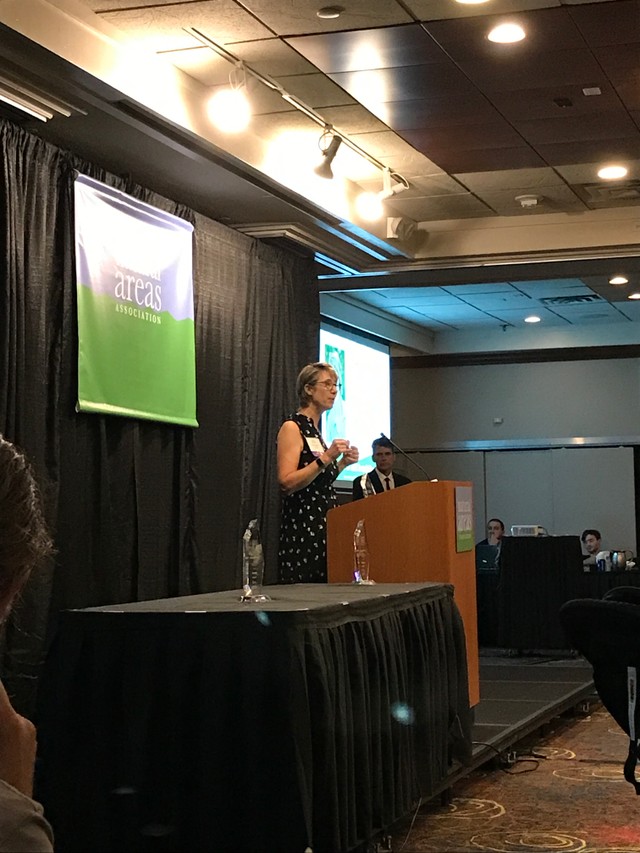
Ellen Jacquart accepting her award
For context, around the time she began her undergraduate work in botany at the University of Wisconsin, women had barely begun to be accepted into the school’s wildlife ecology department. There were no women role models and few people taking an interest in her future.
“When I was in college, and even when I was going for my graduate degree,” she says, “no one showed me the jobs that were out there. I was unclear as to what I would do with this degree. I just knew I really liked plants and working outdoors.”
But after graduating she found a short-term internship in New York that was interesting, if not exactly her ideal. Then she reconnected with a classmate who’d been working for the Indiana DNR Division of Nature Preserves. She heard him talk about walking around in bogs looking for rare plants, and wondered: How do I get a job like that?
Her friend was able to connect her with an opportunity to inventory rare plants on a naval base. Ellen had trained as a physiological ecologist, not a botanist, but she jumped at the chance. “I couldn’t have told you ten common plants in Indiana, let alone rare ones,” she laughs.
The experience turned out to be completely lifechanging. She learned quickly over the nine months of that internship, and she connected with all the people who would go on to hire her after that. She built mentoring relationships, including with current CILTI board member John Bacone (whose career as the head of the Division of Nature Preserves spanned four decades).
“It defined my whole life,” she says. “And I met my husband who worked in the Division of Nature Preserves, and we’ve been married for 30 years.”
One of the highlights of her career happened at Kankakee Sands in northwestern Indiana. At the time, she was in the final phase of her work life with The Nature Conservancy, where she was director of stewardship. Her team had spent many years fundraising and planning for the release of bison.
In fall of 2016, as Ellen’s retirement loomed, the day had finally come. The bison were being trucked in from South Dakota, with an estimated arrival time of 5am. Ellen had planned to arrive mid-day for a celebration.
But in the middle of the night, unable to sleep, she jumped in her car and drove from her home in Ellettsville to the preserve. “I got there right as the truck was pulling in and the sun was rising,” she recalls. She jumped out of the car, and someone handed her a shovel. “The ramp did not reach the ground,” she says. “We all had to shovel sand to get a smooth ramp for bison to come down.”
When all was ready, she stood behind the truck as the doors were opened to turn the bison loose. “They’re 10 feet from me, and I’m seeing all these huge bodies rush off the truck and gallop away. My heart was pounding so hard. That was so amazing.”
Since her retirement, she is still actively working on behalf of nature. She was the driving force behind the statewide Terrestrial Plant Rule, which makes it illegal to sell, gift, barter, exchange, distribute, transport, or introduce 44 invasive plants. She is still advocating to amend the rule to include species like Callery pear and burning bush.
She also volunteers as president of the Indiana Native Plant Society and as leader of the Monroe County Identify and Reduce Invasive Species group.
Her earlier volunteer work extended to a small but mighty effort here in Central Indiana as well.
In the late 1980s, Ellen began meeting with a small group of passionate folks concerned about the rapid loss of natural areas. She went on to spearhead CILTI’s formation as a nonprofit organization, a process that took three years. By 1990, the land trust had nonprofit status, bylaws, and a mission statement, and was on its way to becoming the robust organization it is today.
The need has never been greater, she says, referring to stripping of wetland protections, the rate of development, and loss of habitat. “There’s so much progress that we still need to make,” she says.
It’s the tireless work of dedicated people like Ellen that makes that progress possible. Congratulations to Ellen on this well-deserved award!
Join Ellen for Indiana Native Plant Society’s annual conference, of which CILTI is a sponsor. It is happening Oct. 22 in Carmel. Details here.

Ben Valentine
Guest Blogger
Ben Valentine is a founding member of the Friends of Marott Woods Nature Preserve and is active in several other conservation organizations. He leads a series of NUVO interviews with Indiana's environmental leaders, and he cherishes showing his son all the wonders of nature he grew up loving.

DJ Connors
Guest Blogger
DJ Connors, a Central Indiana native and late-to-life hunter, combines a lifelong appreciation for wildlife and the outdoors with a deep passion for exploring the natural beauty of the area he has called home for most of his life. As a husband and father of three, he is committed to ensuring his children have the same opportunities to connect with nature and appreciate the outdoors in their community. DJ’s unique journey into hunting emphasizes sustainability, responsible stewardship, and the importance of preserving these experiences for future generations.

Bridget Walls
Guest Blogger
Bridget is our first ever Communications and Outreach Intern. She is a graduate of Marian University, where she combined English, studio art, and environmental sciences in her degree studies. As treasurer for Just Earth, the university's environmental club, she helped plan events encouraging a responsible relationship between people, nature, and animals.

Jordan England
Guest Blogger
Jordan England is a lifelong Shelby County resident who graduated from Waldron Jr. Sr. High School (just a few miles from Meltzer Woods!). After earning her B.S. degree in Retail Management from Purdue University, she returned to Waldron to start a family with her husband, Brian. Together they have 3 young children and enjoy sharing with them their love of the community. Jordan is the Grants and Nonprofit Relations Director at Blue River Community Foundation, managing BRCF’s grant program, providing support to local nonprofits, and promoting catalytic philanthropy in Shelby County.

Cliff Chapman
President and CEO
As CILTI’s President and CEO, Cliff keeps CILTI’s focus on good science and stewardship. He’s mindful that the natural places you love took thousands of years to evolve and could be destroyed in a single day, and that knowledge drives his dedication to their protection.
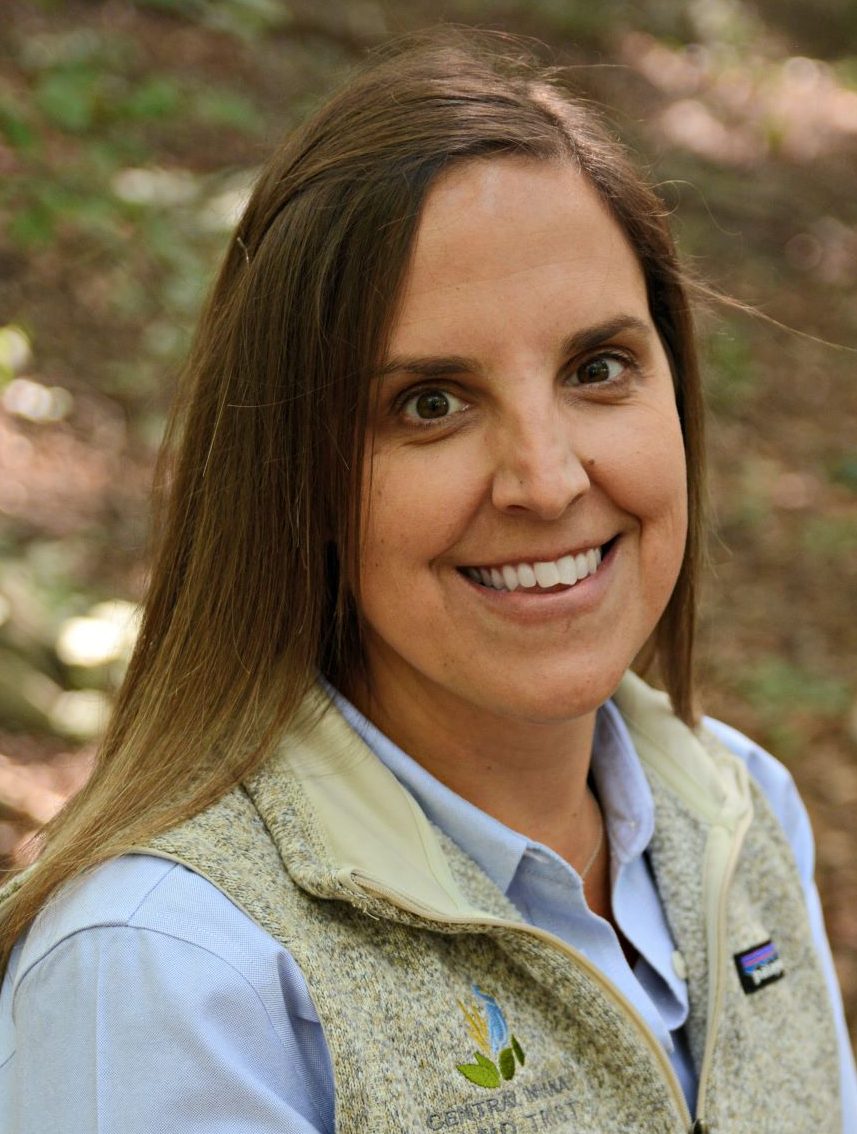
Stacy Cachules
Chief Operating Officer
Among her many key duties as Assistant Director, Stacy has the critical task of tracking our budget, making sure we channel donations for maximum efficiency. When her workday’s done, Stacy loves to spend time with her two young boys—and when not traveling, she’s likely planning the next travel adventure.

Ryan Fuhrmann
Board Chair
Ryan C. Fuhrmann, CFA, is President and founder of Fuhrmann Capital LLC, an Indiana-based investment management firm focused on portfolio management. Ryan’s interest in land conservation centers around a desire to help preserve natural habitats for wildlife and the subsequent benefits it brings to people and the environment.

Joanna Nixon
Board Member
Joanna Nixon is the owner of Nixon Consulting, an Indianapolis-based strategy and project management firm focused on the nonprofit sector. She currently serves as the Philanthropic Advisor for the Efroymson Family Fund. Prior to opening her consulting practice in 2000, Joanna was vice-president for grantmaking at Central Indiana Community Foundation (CICF). Joanna has more than 25 years of experience in the nonprofit and arts and culture sector. She is passionate about the environment and loves bringing big ideas to life and creating high-quality arts and culture programs and experiences. Joanna enjoys outdoor adventures, including competing in fitness obstacle course races and hiking with her high energy Australian Cattle Dog, Jackson.

Karen Wade
Board Member
Before retiring, CILTI board member Karen Wade worked for Eli Lilly & Co. In retirement she volunteers for a number of organizations, including the Indiana Master Naturalist program, Johnson County Native Plant Partnership CISMA, Meadowstone Therapeutic Riding Center, and Leadership Johnson County.

David Barickman
Development Systems Manager
Born and raised in Central Illinois, David spent many days as a child wandering around the river, forest and lakes there. He works behind the scenes as a key member of our fundraising team. When not working, David loves to be outdoors hiking, fly fishing, kayaking or woodworking.

Jamison Hutchins
Stewardship Director
Jamison leads our stewardship team in caring for the land that is so important to you. He comes to our team after eight years as Bicycle and Pedestrian Coordinator for the city of Indianapolis, where his work had a positive impact from both health and environmental perspectives.

Jen Schmits Thomas
Media Relations
An award-winning communicator and recognized leader in Central Indiana’s public relations community, Jen helps us tell our story in the media. She is the founder of JTPR, which she and her husband John Thomas own together. She is accredited in public relations (APR) from the Public Relations Society of America, and loves to camp and hike in perfect weather conditions.

Shawndra Miller
Communications Director
Shawndra’s earliest writing projects centered around the natural world, starting when a bird inspired her to write her first “book” in elementary school. Now she is in charge of sharing our story and connecting you to our work. Through our print and online materials, she hopes to inspire your participation in protecting special places for future generations.

Phillip Weldy
Stewardship Manager
Phillip enjoys nature’s wonders from an up-close-and-personal perspective as he works to restore the natural places you love. As an AmeriCorps member in Asheville, NC, he had his first full immersion in relatively undisturbed land while reconstructing wilderness trails in National Parks and National Forests.
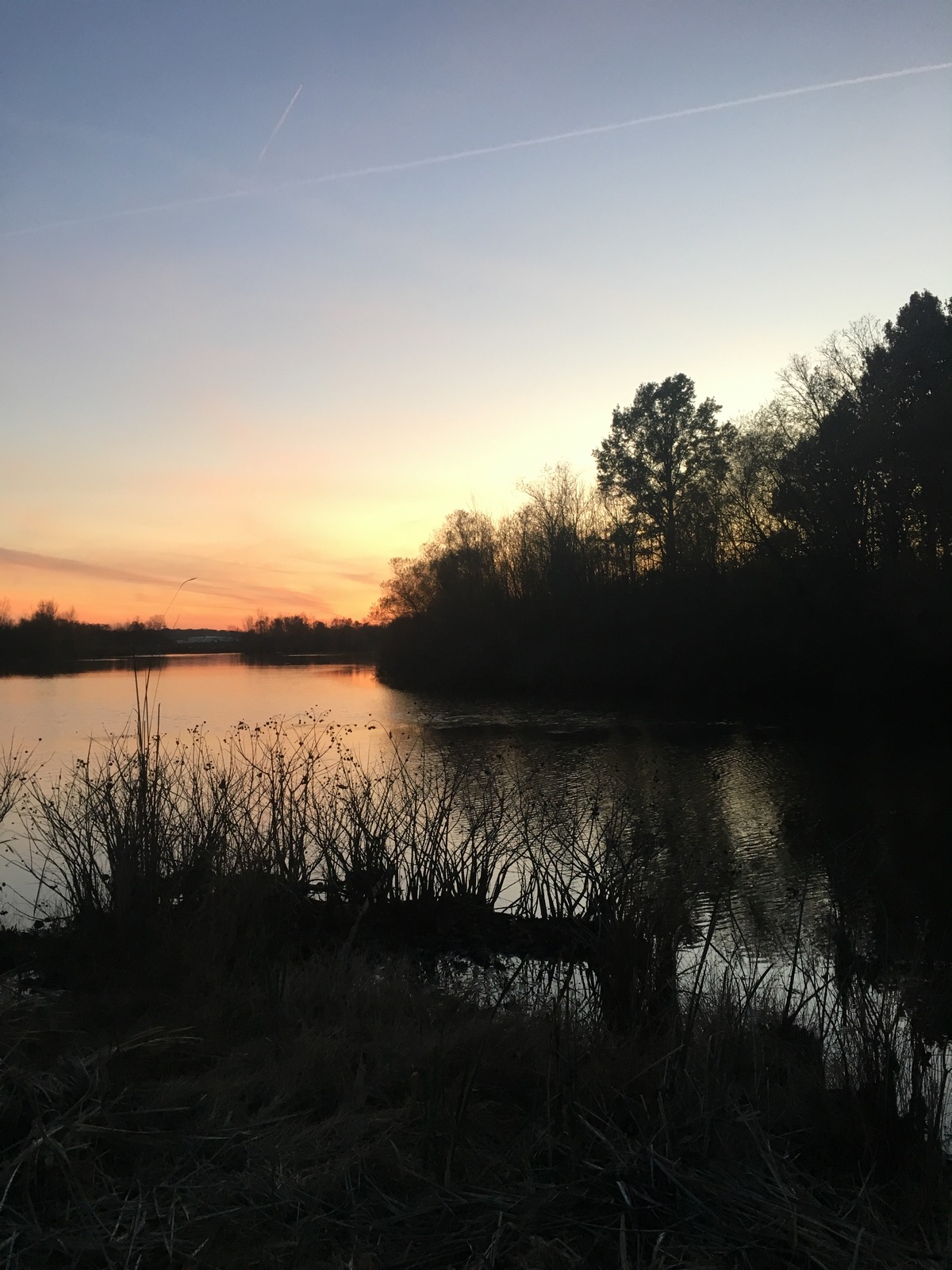

February 2, 2026
Kidneys of the planet. Biodiversity hotspots. Sponges. These are just some of the ways wetlands can be described, according to Gary Lamberti, Nieuwland Professor of Aquatic Science at the University of Notre Dame.
Browning Marsh,Meltzer Woods,Newsroom,Properties
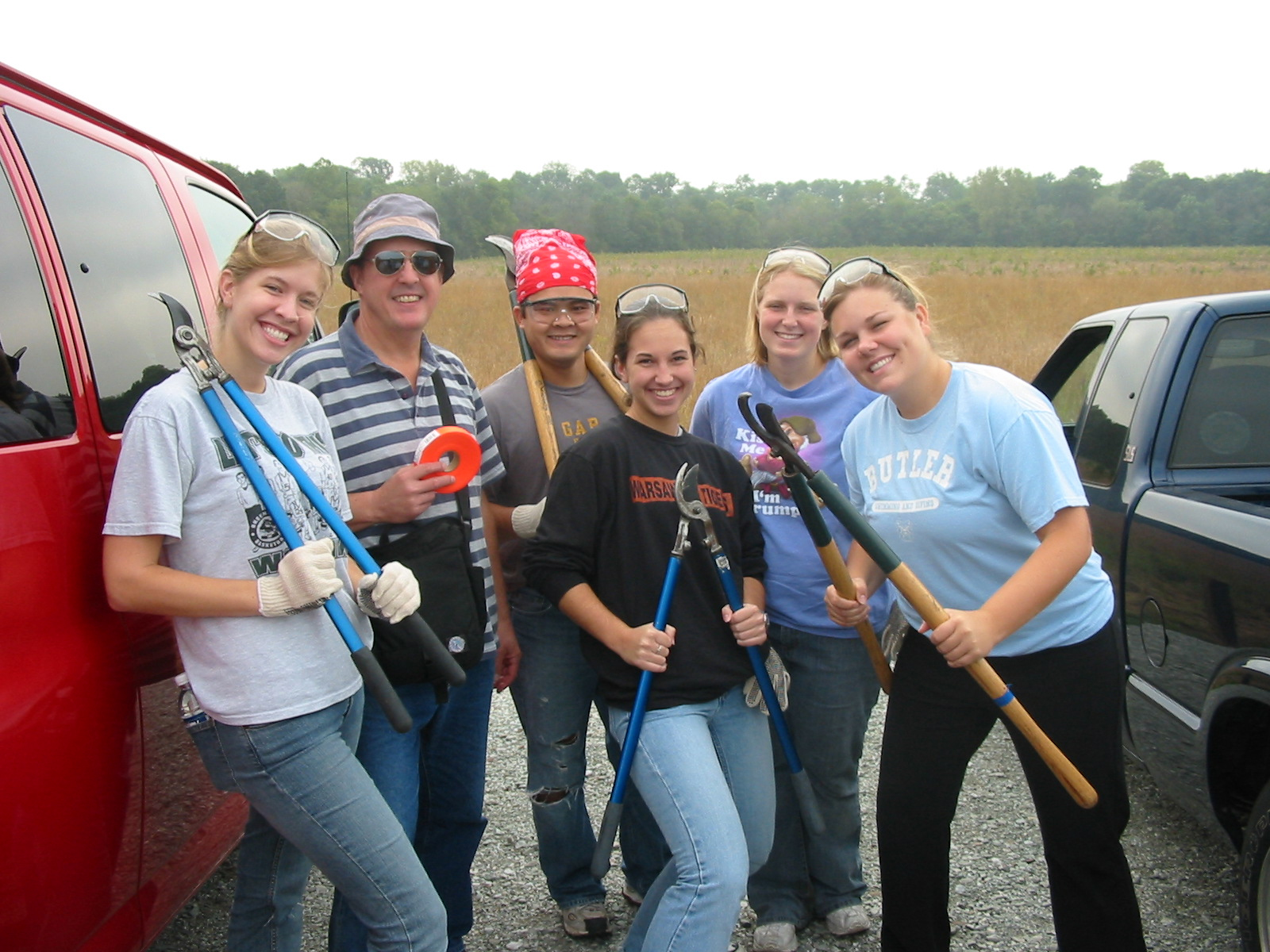

January 21, 2026
Dick Miller (second from left, above) is a longtime land trust member with a history of rolling up his sleeves. He started off by bringing his Butler students to volunteer events in the late 2000s. After retirement, he volunteered weekly and later joined the board of directors. His beautiful [...]
Legacy,Newsroom


January 8, 2026
We knew at the outset that our goal would require everyone to dig deep. The Efroymson Family Fund offered a generous $350,000 matching challenge, our largest year-end challenge to date. It was a big stretch.
Fred & Dorothy Meyer Nature Preserve,Homepage,Newsroom,Properties





